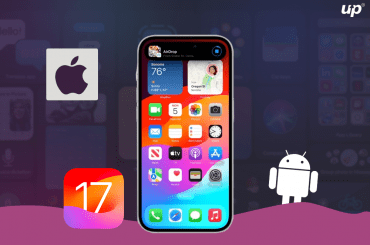Mobile apps UI is so simple, as many users think that they are easy to build. But the actual story is totally different as a lot of developers work harder to provide users a friendly and beautiful UI.
Innovation is the fundamental nature of technology, by which the biggest revolutions were taking place in the tech industry. In recent times, there has been an increased number of smartphones in the world over a decade and it has been one of the major reasons for the rapid increase of the app development industry.
For developing a single mobile application, various elements like the back end, front end, integration, and testing need to work together for months. Mobile app developers use different types of mobile development tools and mobile development frameworks to deliver the best results.
Here, I have listed out some of the top android app development frameworks:
 React native:
React native:
The best framework for mobile app development is used by the topmost companies all over the globe. It is an open-source platform that was developed by Facebook in 2015, to build native mobile apps for different platforms like android and iOS.
For a few years now, it has been the first choice for many companies. It uses React and JavaScript languages to develop mobile apps. This framework will remain in the industry for a long time now.

Benefits:
![]() Community of developers
Community of developers
![]() Code re-usability
Code re-usability
![]() Cost-effective
Cost-effective
![]() Great user interface
Great user interface
![]() Usage of third-party plugins
Usage of third-party plugins
![]() Predefined solutions and libraries
Predefined solutions and libraries
![]() Optimal performance
Optimal performance
Ionic framework:
It stands second in the list of top frameworks based on user usage, features, and advantages. It is open-source on the SDK platform developed by Max Lynch, Adam Bradley in 2013. It involves very influential tools and services to develop the best active mobile app. It is most used by the developers of the USA when compared to all over the world. More than 4 million apps have been built using this open-source platform to build hybrid apps.

Benefits:
![]() Cross-platform app development framework
Cross-platform app development framework
![]() Greater design and user-interface
Greater design and user-interface
![]() Compatibility
Compatibility
![]() Great design and user-interface
Great design and user-interface
![]() AoT compiling to load lighting speed
AoT compiling to load lighting speed
![]() Live reload
Live reload
Also Read: Best Cross-Platform App Frameworks You Need to Look At In 2020
Xamarin:
Developed and supported by Microsoft, Xamarin is one of the best mobile app frameworks. It is used to develop cross-platform mobile applications as it includes the involvement of C#. It uses a single programming language that can work on different platforms like Android, iOS, and windows. We can easily share the same code on different platforms without changing the single code and language.

Benefits:
![]() Single code on multiple platforms
Single code on multiple platforms
![]() Faster app development
Faster app development
![]() Cost-effective
Cost-effective
![]() User-friendly user interface
User-friendly user interface
![]() Complete ecosystem for the development
Complete ecosystem for the development
Adobe PhoneGap:
Adobe PhoneGap is one of the best mobile frameworks to build ideal mobile cross-platform applications by using JavaScript, HTML5, and CSS programming languages in the USA. This framework will not depend on hardware configuration while developing.
It is open-source and is free of cost. The framework has millions of downloads, and they use these sources to develop unique mobile apps for various platforms. with the help of this framework, we can develop mobile applications on different platforms like windows, android, iOS, Blackberry, and Ubuntu.

Benefits:
![]() Plugin library
Plugin library
![]() Third-party tools
Third-party tools
![]() High-quality performance
High-quality performance
![]() Cross-platform app development framework
Cross-platform app development framework
![]() Code re-usability
Code re-usability
Mobile Angular UI:
It is the free and open-source mobile app development framework, that is widely used by developers in the USA and the world. This framework enables you to build a mobile app with fewer efforts using Bootstrap and Angular, we can design a great hybrid mobile app framework. It uses HTML5 programming language and is mostly the same as for Sencha Touch or jQuery mobile framework.

Benefits:
![]() Developers community
Developers community
![]() Easy conversation from the web to mobile apps
Easy conversation from the web to mobile apps
![]() Responsive framework
Responsive framework
![]() No default controls
No default controls
jQuery mobile:
The jQuery mobile has a tagline to write less, do more. so, if you are planning to develop a mobile app in a very little time, you can opt for this framework. It is the hybrid mobile app development framework that is used by 73% of popular websites. Once coded and it will run across various platforms.

Based on html5 framework, that designs various active mobile apps and websites for the market that includes smartphones, PC’s, and tablets. It comes with two different variants i.e. customized framework and stable version.
Benefits:
![]() Cross-platform mobile app development framework
Cross-platform mobile app development framework
![]() Responsive framework
Responsive framework
![]() Add-on plugins
Add-on plugins
![]() Open platform
Open platform
![]() Supports multiple platforms and devices
Supports multiple platforms and devices
Corona SDK
The framework is mostly used to build apps related to games. It is free of cost and open-source cross-platform framework. Any developer who wishes to develop a mobile app ten times faster, they can definitely go for Corona SDK. It uses Lua scripting language for programming.

This framework enables you to get unused apps even though we are developing mobile apps in less time when compared with other frameworks.
Benefits:
![]() Cross-platform framework
Cross-platform framework
![]() Live testing
Live testing
![]() Real-time simulation
Real-time simulation
![]() More than 200 plugins
More than 200 plugins
![]() Easy setup
Easy setup
Flutter:
If you are planning to develop hybrid mobile apps, then flutter is the best option you can go for. It is a mobile app development framework, which is the open-source developed by Google in 2017. It originated in the DART language.
Flutter will provide a tool kit by which we can build outstanding, native-compiled applications to mobile, desktop, and web with a single code.

For visuals, flutter uses Sika, which is a 2D rendering engine. Test your app with this framework to get the rightmost favorable results. The famous framework is used by Alibaba, Tencent, app tree and more famous brands.
Benefits:
![]() Flexible user interface
Flexible user interface
![]() Fast development
Fast development
![]() Native performance
Native performance
Conclusion:
The above all are the various mobile app development frameworks that are on the top of the list and are used by well-known brands and medium-sized organizations. Before stepping into it, don’t forget to analyze the requirements and based on what you require, choose the framework accordingly. These frameworks are likely to rule in 2020 and in coming up years in the industry.












